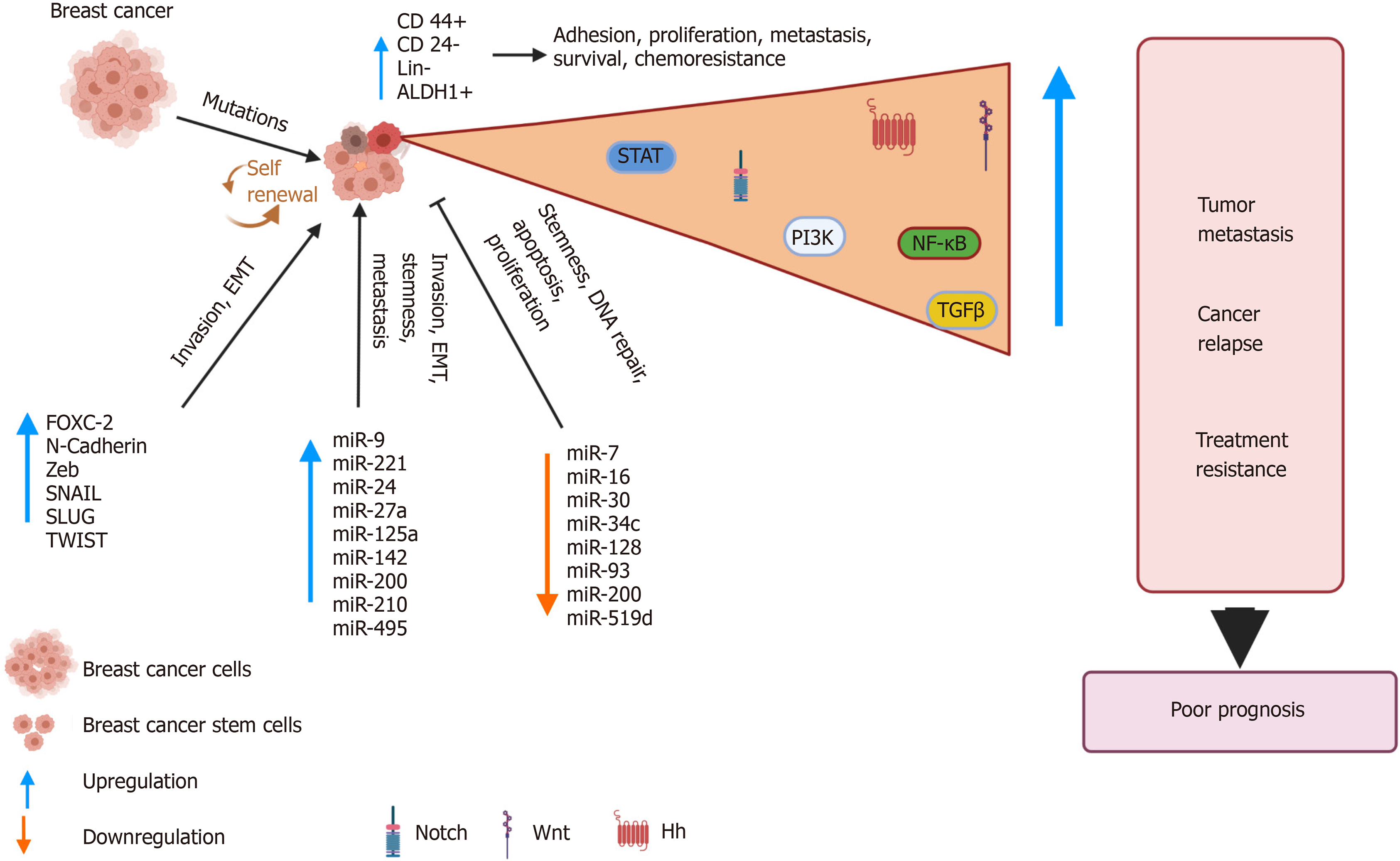Copyright
©The Author(s) 2021.
World J Stem Cells. Jul 26, 2021; 13(7): 841-860
Published online Jul 26, 2021. doi: 10.4252/wjsc.v13.i7.841
Published online Jul 26, 2021. doi: 10.4252/wjsc.v13.i7.841
Figure 6 Breast cancer stem cells: drivers of tumorigenesis and cancer relapse.
Genomic instability due to inherent mutations or in response to treatment results in alterations in various pathways. This abnormal signaling drives the development of a distinct subpopulation of breast cancer stem cells (BCSCs), which display characteristic cell surface markers and express genes that allows unlimited self-renewal and differentiation abilities. The BCSCs also display altered microRNA profiles that are used by the BCSCs to invade, metastasize and acquire stemness features. The net result is the development of an aggressive, treatment resistant tumor, which results in relapse. BCSCs: Breast cancer stem cells; NF-κB: Nuclear factor kappa beta; PI3K: Phosphatidylinositol 3-kinase; TGFβ: Transforming growth factor beta; EMT: Epithelial mesenchymal transitions; Hh: Hedgehog; ALDH: Aldehyde dehydrogenase.
- Citation: Khan S, Suryavanshi M, Kaur J, Nayak D, Khurana A, Manchanda RK, Tandon C, Tandon S. Stem cell therapy: A paradigm shift in breast cancer treatment. World J Stem Cells 2021; 13(7): 841-860
- URL: https://www.wjgnet.com/1948-0210/full/v13/i7/841.htm
- DOI: https://dx.doi.org/10.4252/wjsc.v13.i7.841









